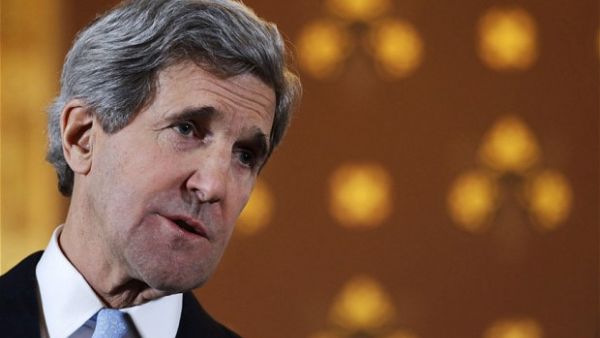Syrian peace talks are set to begin in Geneva next week, and things are off to a shaky start.
As rival camps from the Syrian opposition bicker about who should sit at the negotiation table, US Secretary of State John Kerry admitted Thursday that the talks’ original Jan. 25 launch was no longer feasible. Still, he said there would be no “fundamental delay.”
Meanwhile, Russia faces renewed scrutiny over the civilian casualties accrued in areas they’ve hit with airstrikes.
As the first negotiation round of the year, these talks are meant to carve out a path to end the five-year-long civil war in Syria. But the last weeks have brought little clarity to the process, and as the expected start date nears, that confusion appears only to be deepening.
Here's three things to know:
1. Russia is looking at accusations of striking civilian areas—again. Last week, a suspected- Russian strike on a village in Daesh-controlled Deir-Ezzor killed at least 63 people, nine of them children, Uk monitor Syrian Observatory for Human Rights reported, bringing ramped up criticism to the Kremlin's campaign and more pressure to the talks.
2. Bickering between factions of the Syrian opposition is threatening to stalemate negotiations, and US support. Five years of civil war have formed a mixed bag Syria's opposition wrought with competing elements. Jordan composed a list of terror organizations who would be barred entry, but that's offered little clarity to who—if any—among the opposition will actually end up at the talks. On Saturday, Kerry threatened to withdraw US support if opposition members failed to agree upon a Geneva representative. But things remained murky on Sunday.
3. Kurdish involvement is still up in the air. At the end of last week, German officials said Kurdish representatives should be allowed at the peace talks. Factions like the Syrian Kurdish militia People's Protection Units (YPG) and Iraqi Kurdistan's pershmerga forces have played integral roles in the fight against Daesh, but their links to the Kurdistan Workers Party (PKK) have ruffled feathers in Turkey, which considers the group a terrorist organization. A final decision has yet to be made, but the discussion threatens further rifts between international players.







